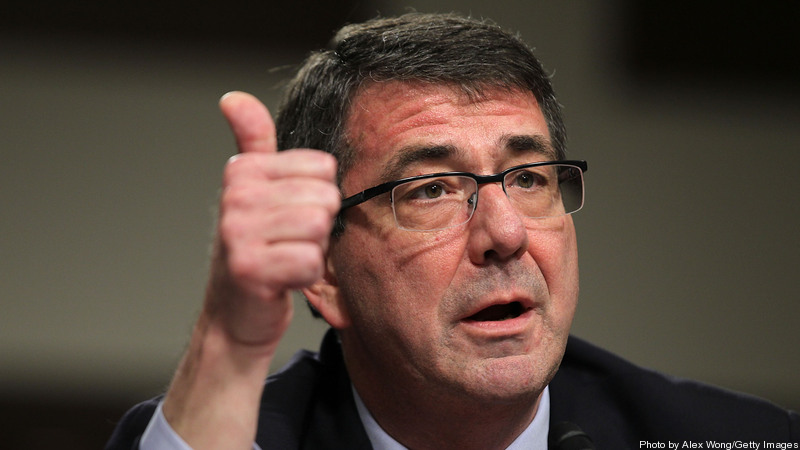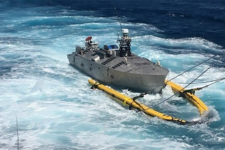
Washington: Defense Secretary Leon Panetta made a safe choice and elevated the head of Pentagon acquisition to serve as his deputy. Ash Carter will lead the Pentagon’s enormously difficult efforts to cut the budget without gutting America’s military capabilities.
The nomination of Carter, who has won consistent praise from defense lawmakers for his oversight of the Joint Strike Fighter program and other major defense programs, was announced by the White House this afternoon. The deputy defense secretary runs the Pentagon day to day, oversees major acquisition decisions and serves as the department’s top finance officer.
Reaction was generally favorable, with no one expressing great delight. A senior congressional aide said simply that Carter, “was not a surprise. I would expect him to play a key role in reducing defense spending.”
Winslow Wheeler, one of the Beltway’s best defense budget experts, was the most critical voice.
“Ugh. Business as usual reigns supreme. Why should we reward the management techniques that pretend the F-35 could ever be something we can afford and would address the decay in our air forces? Just when a new wave of second-tier Pentagon leaders is needed we promote the ones we should be discarding,” Wheeler said in an email. [Wheeler is a member of Breaking Defense’s Board of Contributors.]
The Obama administration was hamstrung in the range of choices it could make because very few experienced defense experts would be willing to submit to the Obama administration’s stringent ethics requirements on top of the onerous process for obtaining clearance and being nominated. That left just a few people — Carter and Michele Flournoy, undersecretary of defense for policy tops among them — as viable candidates for the job of the soon-to-depart Bill Lynn.
One long-time Pentagon watcher cast Carter as, “the pick of the litter as far as the administration is concerned.”
Among his strengths:
A very broad command of defense policy as well as a command of acquisition issues such as the F-35 that are sure to remain major sticking points. And the Pentagon watcher said Carter has had time to “adjust to the fact that, as long as we are at war, defense secretaries aren’t going to have much to do with acquisition.”
A Republican defense expert expressed the hope Carter would make strategic — not budgetary — choices as he oversees the defense drawdown. “He is probably the best choice in this new
spending era given that he understands the need to approach the debt-related defense cuts with a scalpel and not simply raiding the modernization accounts (the tried-and-true, easiest approach preferred by DoD in the past),” MacKenzie Eaglen, analyst at the Heritage Foundation, wrote in an email. [Eaglen is also a member of Breaking Defense’s Board of Contributors.]
Among Carter’s weaknesses:
He lacks industry experience, “in trying to cope with the very difficult relationship between industry and its monopsonistic buyer, the Department of Defense,” the Pentagon watcher said. As one defense industry expert put it somewhat more brightly, Carter is another Obama pick with: “…lots of academic paper to hang on his wall and sitting-on-committee experience but has not commanded anything, run a business, never been accountable and responsible for any organization as its leader, worn a uniform, pulled a trigger, and probably never been in a fist fight, or given first aide to an accident victim. Too bad we never get appointees who have been in charge and had to suck the pickle for what his organization did or did not do.”
Carter’s most intractable challenge may well be improving the acquisition system he has overseen since the beginning of the Obama administration.
Most likely to replace Carter as undersecretary of defense for acquisition, technology and logistics, according to the congressional and our Pentagon watcher: Frank Kendall, Carter’s deputy.
Navy awards several contracts aimed at advancing key mine countermeasures capabilities
The mission modules advancement will pave the way for the service’s legacy helicopters and Avenger class ships to be retired.


























